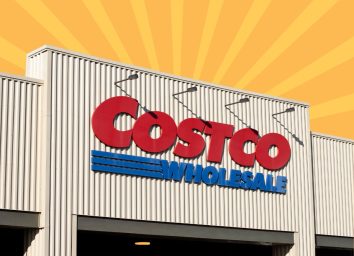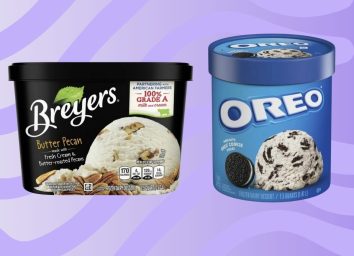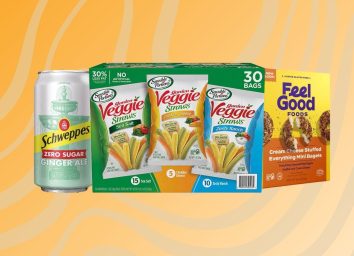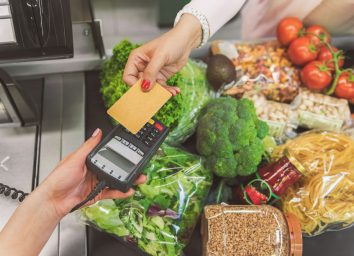This Surprising Shortage Is Spelling Trouble for Pizza, Meat & Beer Right Now
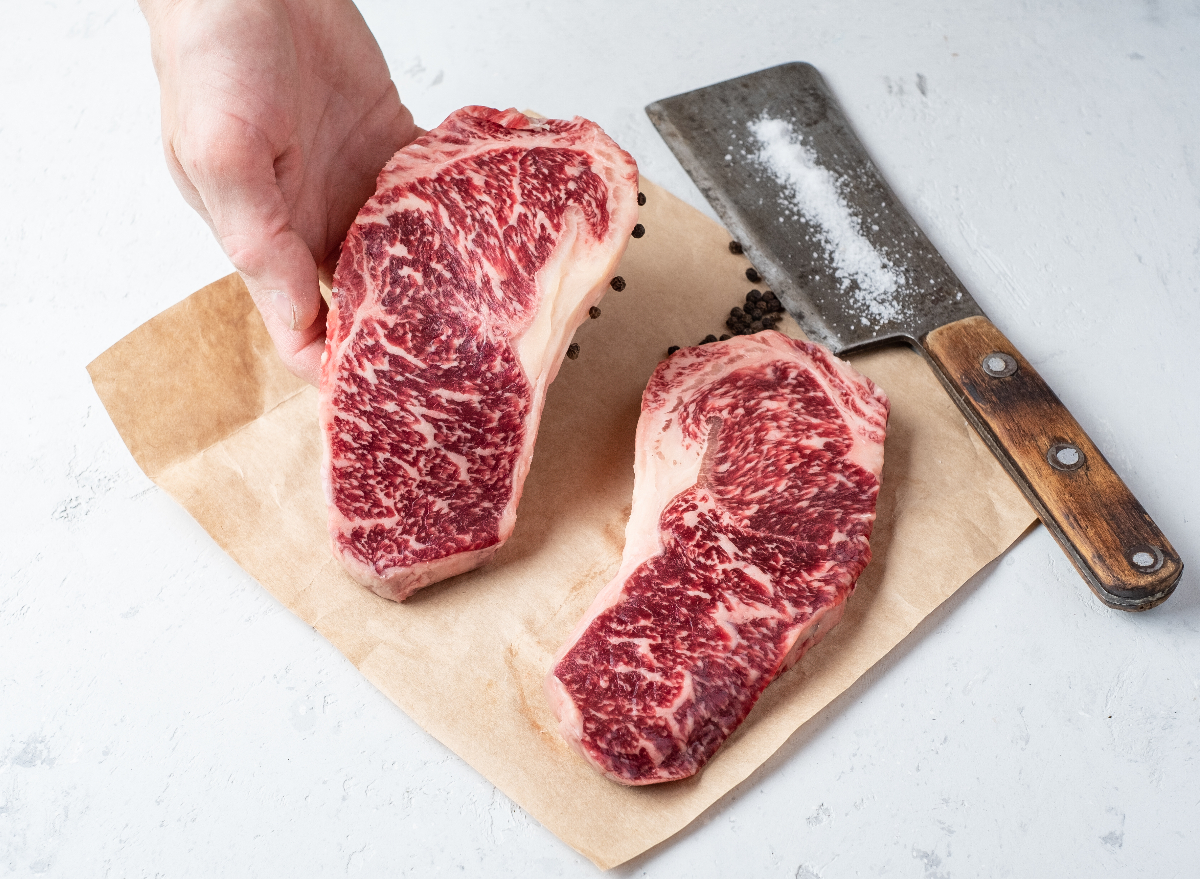
Shortages have been big news in the post-Covid era due to the current state of the supply chain, affecting everything from baby formula to Sriracha. At this point, it seems like the next item on your list of favorite foods is on the chopping block every other day. And, unfortunately, with this current carbon dioxide shortage, that continues to be the case.
While a carbon dioxide (CO2) shortage makes you think of the obvious—beer and soda—it actually affects more food products than you initially assume. An executive of the Compressed Gas Association told The Wall Street Journal that upwards of 70% of the CO2 produced in the U.S. is used for both beverages and food. For example, outside of giving your drinks their signature fizz, CO2 is also used to bring the temperature of food down before it's frozen and is even used to stun animals before slaughter, according to The Journal.
CO2 supply has actually been tight since 2020, as we've previously reported. There have been many factors at play behind the shortage, which range from oil prices skyrocketing to ethanol plants cutting production. Carbon dioxide is a byproduct of ethanol production, so when fewer cars were on the roads during Covid, less ethanol was needed for gas, thus less CO2 was produced as a result.
Now, maintenance shutdowns of CO2 plants and general summer demand are also to blame, the WSJ reports. All of these issues have to come to a head right before Labor Day weekend to cause the current shortage. Here's what could become scarce in the next couple months as this shortage is worked out.
Fresh Meat
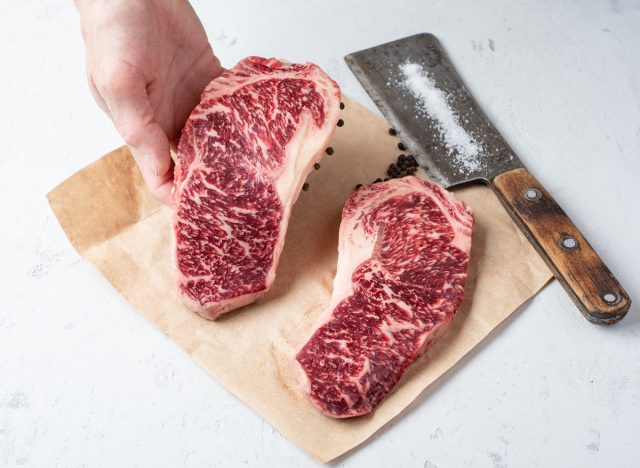
If you're looking to throw a steak or burgers on the grill, they could be in short supply in the grocery store for a variety of reasons. According to the WSJ, CO2 is used in all aspects of the meat supply chain, from stunning animals before slaughter to chilling and processing. It is also used in the shipment of meat as dry ice. Tyson and Butterball were among the companies that reported concerning shortages.
Cold cuts
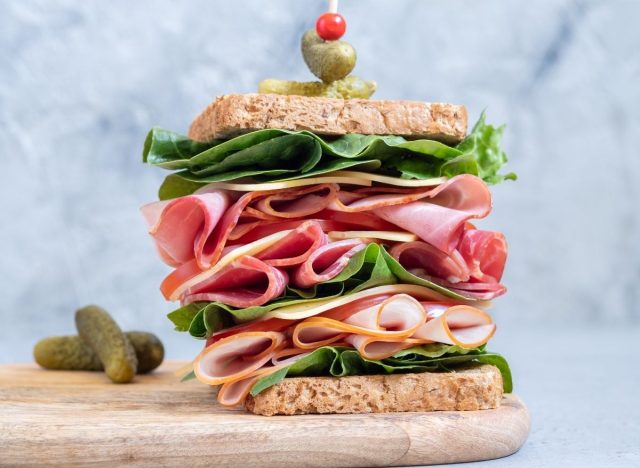
Cold cuts are preserved similarly to fresh meat, with what's called modified atmospheric packaging. Essentially, CO2 and other gases are pumped in and oxygen is removed to give the product longer shelf life.
According to the WSJ article, Kraft has warned retailers of a potential shortage of cold cuts like turkey and bologna due to to the shortage. Kraft noted "severely constrained" carbon-dioxide supplies and other issues as the cause of the potential cold cuts shortage. As Food Manufacturing points out, if shipments of this gas are interrupted, whole batches of foods could spoil, so manufacturers need to stay ahead of possible disruptions.
Pizza and other frozen products
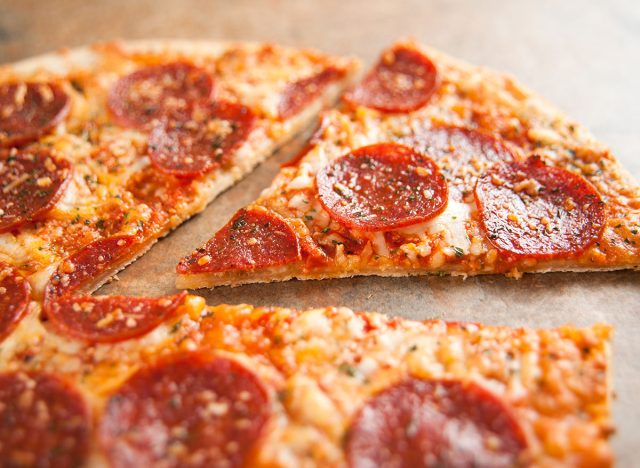
This one is a bit of a shocker, but it all has to do with preservation. During the production of frozen foods, everything from pizza to chicken breasts move through "carbon-dioxide-filled tunnels to be frozen" quickly. The proper amount of CO2 is required to avoid hot spots that could translate to mold and bacteria growth, reports Meat + Poultry.
Beer

This one might be fairly obvious, but it could definitely put a crimp in your Labor Day and tailgating plans. But wait, you might wonder, isn't beer naturally carbonated? While some beers are, they must be sealed in containers before all the natural fermentation has stopped, to trap the precious bubbles. Some beers complete fermentation and must then be forced carbonated. Most mass-produced, party-friendly beers undergo the latter because it is quicker and avoids volatile aromas that could impact flavor, according to Food Dive.
The Good News
You don't have to start stocking up on frozen turkeys, or horde beer and frozen meat. The Wall Street Journal reports that industry professionals are confident that this shortage will run its course by mid-October. Thanksgiving is saved!

